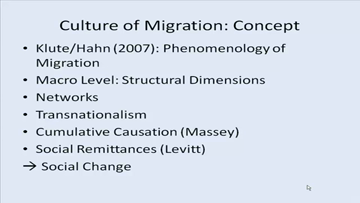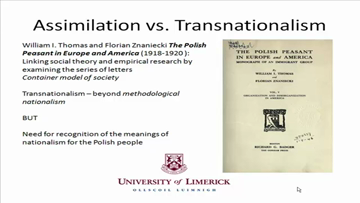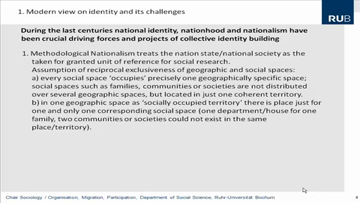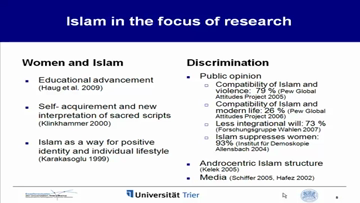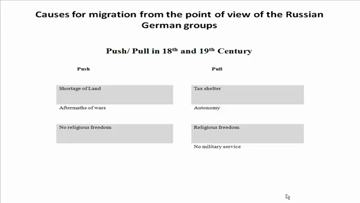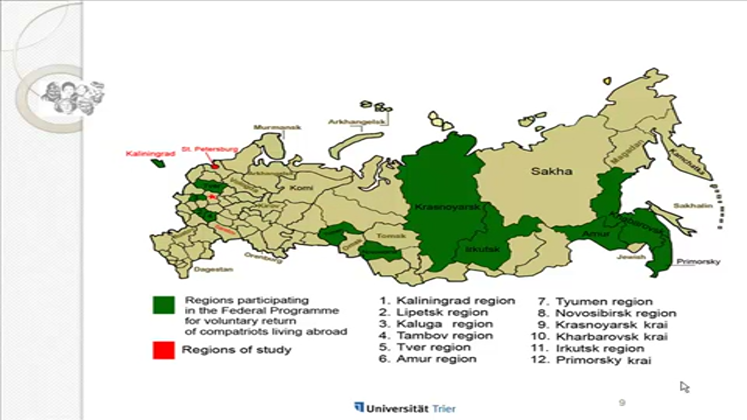Societies Without Space?
Methodological Nationalism, Migration and Transsociation
In recent social scientific writing, globality and locality are no longer regarded exclusively or even principally as opposites. Instead they are seen as alternating concepts, only to be apprehended in relation to one another. In this perspective, locality no longer appears as static or simply given. Rather, it too is now being examined as a site of social practice and social construction.
We observe the gradual dissolution of the concept of society as something territorially bound. This removing of the spatial component from the social casts ever more doubt not only on the notion that physical ties to place are necessary for the production of collective identities, but also raises the question whether even reference to place is actually necessary. Central Asian as well as Russian German (re-)migrants are after all to an ever greater extent transmigrants in transsociation.
Markus Kaiser is co-organizer of the conference and currently senior research fellow at the University of Trier (SFB 600) and was from 2005-09 DAAD-Visiting Professor at the Department for Comparative Sociology, Faculty of Sociology, State University of St Petersburg and from 1999-2005 a senior lecturer in Development Studies at the Faculty of Sociology, Bielefeld University. His fields of interest include migration processes, transnationalisation, the globalisation of knowledge and countries in transition.
Panel VI: The Formation of Identity in Transnational Migratory Processes - October 15th, 2011
The Resilience of People in Motion
-
54498 Hits
-
|
-
2 Votes
-
|
-
16 Beiträge
Processes of immigration, transmigration, and remigration in the wider Europe today
Europe is a continent shaped by migration. Every year millions of people are migrating into the European Union. Others are emigrating from EU member countries. Many are leaving their homes and are trying to integrate into the host country, while others circulate between their home country and their “new home”, leave the country of entry, returning back to their “country of origin”, or they even migrate on to third countries.
Migration is a complex process with constraints and opportunities. Its flows have created different patterns, regimes and even cultures of migration. It involves voluntary and involuntary aspects, economic and non-economic issues, constructions and reconstructions between physical and symbolic spaces. This stipulates also new ways of theorizing and researching in the field.
Strategies of Survival, Strategies of Resistence
Migrants and migratory groups adopt as well as resist to challenges and expectations by the mobility itself or the receiving society. They perform resilient and innovative strategies of survival.
They are resilient by maintaining their culture(s), system(s) of belief, traditions, way of life etc. Yet, they are innovative being open for change, being transformers, innovators, entrepreneurs themselves. Therefore, adoption, change and/or innovation vs. resistance, continuity and/or resilience have to be seen as part of the migratory agency. The migrants’ culture of resilience, meaning the maintenance of core elements of their livelihood, has to be conceptualized in an ever changing world challenging the integrity and cohesion of any, but especially migratory groups.
The Conference
The aim of the conference is to discuss new theoretical approaches, methodologies and empirical research results on immigration, transmigration and re-migration topics. It focusses on changing European migration regimes and discourses since the fall of the iron curtain until today.
Contact
Prof. Michael Schönhuth
University of Trier
Universitätsring 15
D-54286 Trier
+49-(0)6 51-201-27 10 (Office)
http://transmigration.eu/
Zu
The Resilience of People in Motion

